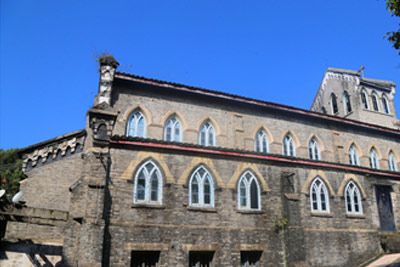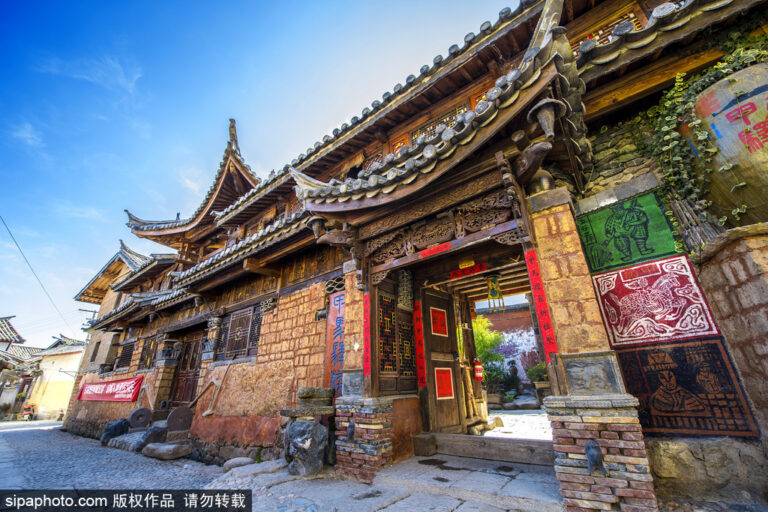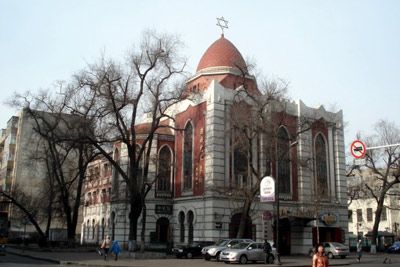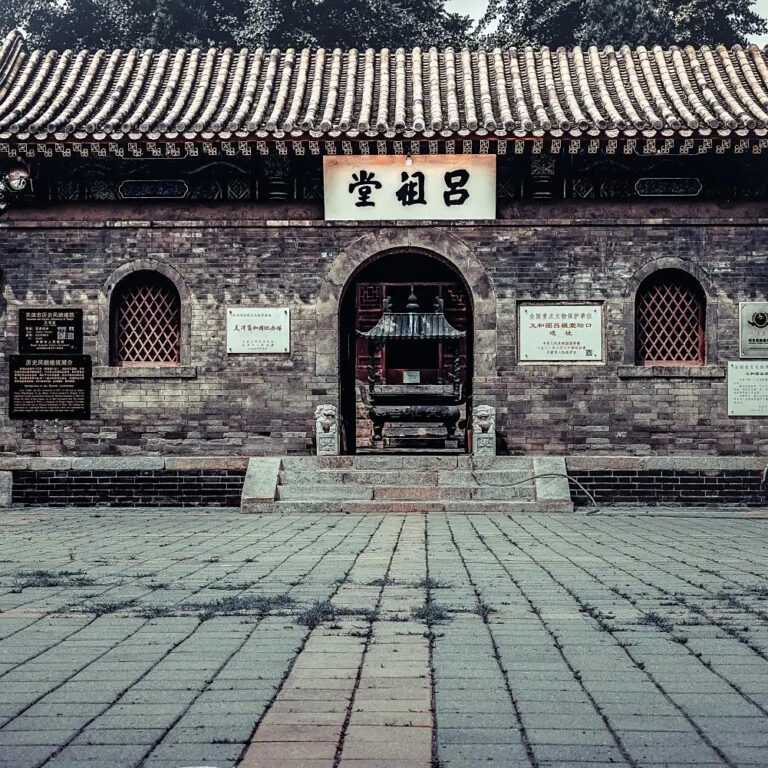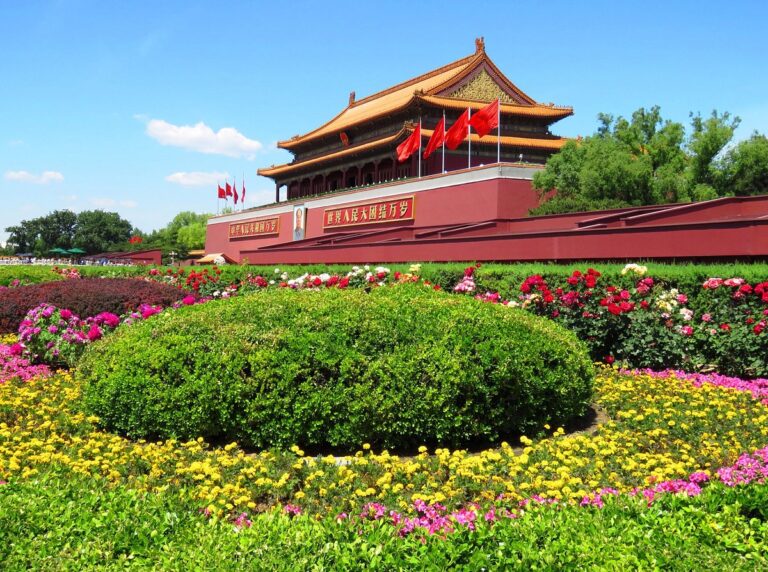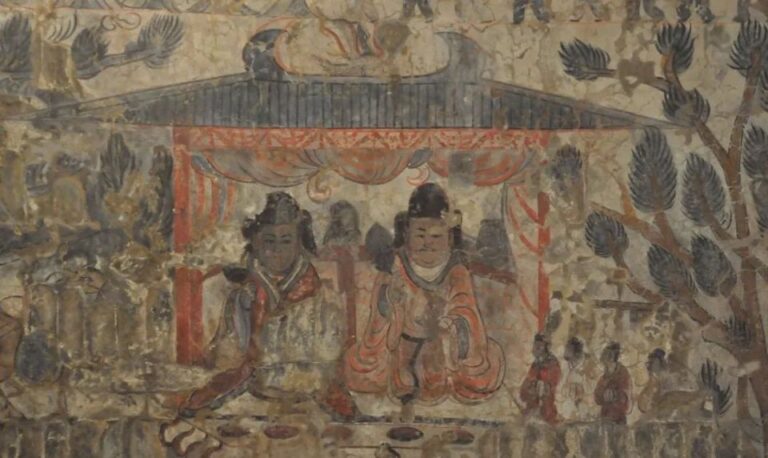A Journey Through Time: Discover Baoding Yaowang Temple in Anguo
An Essential Guide to Visiting Baoding Yaowang Temple Anguo
In This Guide
- An Essential Guide to Visiting Baoding Yaowang Temple Anguo
- The Rich History of Baoding Yaowang Temple Anguo
- Main Highlights: What to See at Baoding Yaowang Temple Anguo
- Planning Your Visit: A Practical Guide
- Tickets, Hours, and Booking
- How to Get There
- Local Cuisine and Accommodation
- Frequently Asked Questions
- Final Thoughts on Your Trip
Nestled in the heart of Hebei Province, the Baoding Yaowang Temple, or Anguo Yaowang Miao, stands as a monument to China’s rich medicinal heritage and cultural history. Recognized as the largest ancient architectural complex dedicated to the legendary medical sages, this temple has been a pilgrimage site for health seekers and history enthusiasts alike for over a millennium. Established during the Tang Dynasty, the temple has survived the tests of time, embodying the spirit of traditional Chinese medicine and its practitioners.
The temple is located in Anguo City, historically renowned as a bustling hub for herbal medicine, earning it the titles of “Pharmaceutical Capital” and “The First Medicine Market in the World.” The vibrancy of the surrounding medicine market owes much to the temple itself, which serves as both a sacred space and a catalyst for commerce. Here, visitors can pay homage to Sun Simiao, the revered “Medicine King,” whose legacy continues to influence the practice of medicine across China.
As you step into the temple grounds, you are greeted by an intricate collection of structures, including the majestic main hall, imposing iron flagpoles, and various memorials to ancient physicians who have shaped the field of medicine through their contributions. The architectural style reflects the artistic achievements of the Song, Ming, and Qing dynasties, offering a glimpse into the past through its beautiful carvings and paintings.
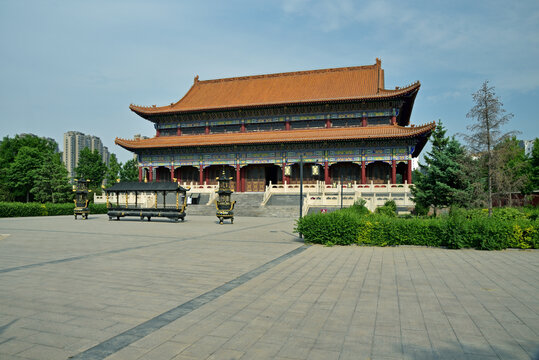
Baoding Yaowang Temple Anguo.
In addition to its historical significance, the temple plays a vital role in local cultural activities. Each year, it hosts grand ceremonies on specific lunar dates, attracting throngs of visitors who come to partake in the vibrant temple fairs, featuring traditional performances and the exchange of goods in the bustling market atmosphere.
Whether you seek spiritual enlightenment, a deeper understanding of traditional medicine, or simply a taste of Chinese culture, the Baoding Yaowang Temple offers a fascinating journey through time, making it an essential stop on any itinerary in Hebei Province.
The Rich History of Baoding Yaowang Temple Anguo
The Baoding Yaowang Temple, located in Anguo City, Hebei Province, is a significant cultural and historical landmark that has stood the test of time for over a thousand years. Originally established during the Tang Dynasty (618-907 AD), this ancient temple complex has undergone numerous renovations and expansions through the Song (960-1279), Yuan (1271-1368), Ming (1368-1644), and Qing (1644-1912) Dynasties, reflecting the architectural styles and religious practices of each era.
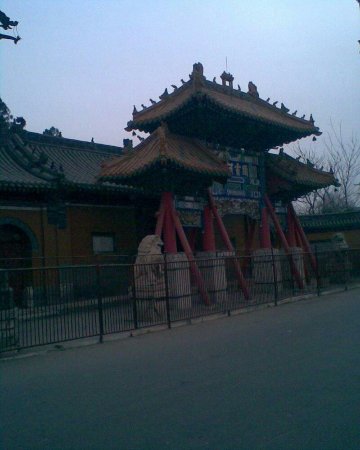
Baoding Yaowang Temple Anguo.
The temple is primarily dedicated to Sun Simiao, revered as the “King of Medicine” in Chinese culture. Sun Simiao (581-682 AD) was a celebrated physician of the Tang Dynasty, known for his exemplary medical practice and contributions to traditional Chinese medicine. His legacy is immortalized in the temple, where his statue can be found, symbolizing the rich history of Chinese medicine and its practitioners.
Anguo, historically known as Qizhou, has long been recognized as a major hub for herbal medicine and traditional Chinese medicinal materials. The Yaowang Temple is often credited with the origin of the Anguo medicinal market, which has grown to become the largest of its kind in northern China. The temple attracts countless visitors and merchants, especially during the annual temple fairs held on the 28th day of the fourth lunar month and the 15th day of the tenth lunar month, transforming it into a bustling marketplace for herbal goods.
The architectural layout of the temple is notable, featuring a series of structures that align along a central axis. Visitors can explore various halls, including the Hall of the Medicine King, the Hall of the Ten Famous Physicians, and the bell and drum towers, all of which showcase intricate craftsmanship and artistic details. The temple complex also includes unique features such as two cast iron flagpoles, which stand at 24 meters tall, a rarity in Chinese temple architecture.
Through the centuries, the Yaowang Temple has maintained its relevance not just as a religious site but also as a center of cultural exchange, fostering trade and the dissemination of herbal knowledge. It has become a pilgrimage site for those seeking blessings for health and well-being, reinforcing its status as a cornerstone of traditional Chinese culture and medicine. Today, it continues to attract tourists, scholars, and practitioners of traditional medicine, serving as a living testament to the enduring legacy of Chinese medicinal practices and the historical significance of the Anguo region.
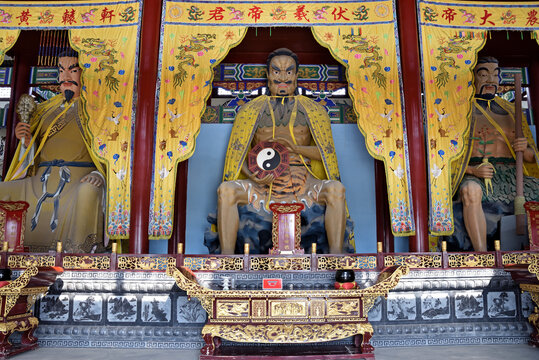
Baoding Yaowang Temple Anguo.
Main Highlights: What to See at Baoding Yaowang Temple Anguo
Baoding Yaowang Temple, also known as Anguo Yaowang Temple, is a remarkable destination steeped in history and cultural significance. Here are the key highlights that make this ancient site a must-visit for travelers:
-
Historical Significance: Established during the Tang Dynasty, the temple honors Sun Simiao, revered as the “King of Medicine” in Chinese culture. His dedication to healing and traditional medicine has made the temple a pilgrimage site for those seeking health blessings.
-
Architectural Marvel: The temple complex spans over 3,200 square meters and showcases an impressive array of traditional Chinese architecture. Visitors can explore a series of structures including the main hall, bell tower, and the unique iron flagpoles, which are a rare sight in China.
-
Cultural Festivals: The temple hosts vibrant festivals on the 28th day of the fourth lunar month and the 15th day of the tenth lunar month. These events attract thousands of visitors who come to pay their respects and participate in traditional activities, creating a lively atmosphere filled with music, dance, and local cuisine.
-
Medicinal Heritage: Anguo is known as the “Drug Capital of China,” and the temple’s origins are closely tied to the flourishing herbal medicine trade. Visitors can explore the nearby markets that offer a vast selection of traditional Chinese herbs and remedies, reflecting the region’s rich medical heritage.
-
Unique Artifacts: Inside the temple, guests can view numerous ancient texts and relics that highlight the development of Chinese medicine over the centuries. This includes historical documents and statues of renowned physicians, providing insight into the evolution of medicinal practices in China.
-
Natural Beauty: Surrounded by picturesque landscapes, the temple is located near scenic mountains and rivers, offering visitors a serene environment to reflect and appreciate the natural beauty of the region.
-
Accessibility: Located in the city of Anguo in Hebei Province, the temple is easily accessible by public transportation from nearby cities like Baoding. The affordable entry fee of around 10 RMB makes it an attractive destination for both local and international tourists.
In summary, Baoding Yaowang Temple is not just a place of worship; it is a vibrant cultural hub where history, medicine, and tradition converge, making it an essential stop for anyone exploring the rich tapestry of Chinese heritage.
Planning Your Visit: A Practical Guide
When planning your visit to Baoding’s Yaowang Temple in Anguo, it’s essential to be well-informed to make the most of your experience. This ancient site, renowned for its rich history and cultural significance, offers a unique glimpse into Chinese medicinal traditions and architectural beauty. Here’s a practical guide to help you navigate your journey.
Location and Accessibility
Yaowang Temple is situated in Anguo City, Hebei Province, approximately 140 kilometers southwest of Beijing. The temple is often referred to as the largest ancient architectural complex dedicated to the veneration of historic medical figures in China. To reach the temple:

Baoding Yaowang Temple Anguo.
- By Public Transport: You can take the Anguo 803 bus directly to the Yaowang Temple stop.
- By Car: If you are driving, follow these directions: Take Chaoyang South Street → S231 → Anguo City → Baoheng North Street → Binhenan Road → Henan Road → Yaowang Temple Street. Parking is available near the temple.
Opening Hours and Admission
The temple is open year-round, with visiting hours from 8:30 AM to 5:30 PM. Admission to the temple is quite affordable, with a ticket price of just 10 RMB (approximately $1.50).
Best Time to Visit
While the temple can be visited throughout the year, consider timing your visit during the major temple fairs, which take place on the 28th day of the fourth lunar month and the 15th day of the tenth lunar month. These events attract large crowds and feature traditional performances, offering an immersive cultural experience.
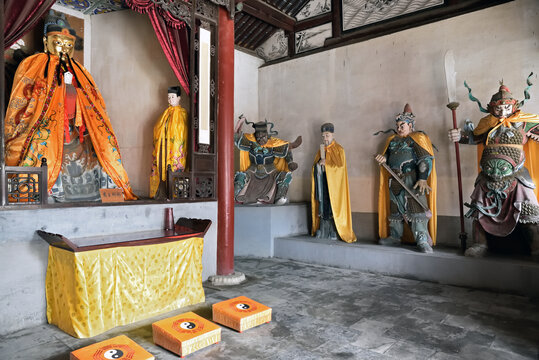
Baoding Yaowang Temple Anguo.
Key Attractions Within the Temple
Once you arrive, take your time to explore the various sections of the temple complex. Key highlights include:
- The Main Hall: Here you can find the statue of Sun Simiao, a legendary figure in Chinese medicine, often referred to as the “King of Medicine.” Visitors come to pray for health and longevity.
- The Iron Flagpoles: These remarkable 24-meter tall iron flagpoles, cast during the Qing Dynasty, are unique in their design and a must-see.
- The Medicine Kings’ Hall: This area honors ten famous physicians throughout Chinese history, showcasing their contributions to medicine.
- The Bell and Drum Towers: These structures add to the architectural grandeur of the temple and often house traditional musical instruments.
Surrounding Attractions
The temple is located within a vibrant area known for its herbal medicine market, which is the largest in northern China. While visiting, take the opportunity to explore:
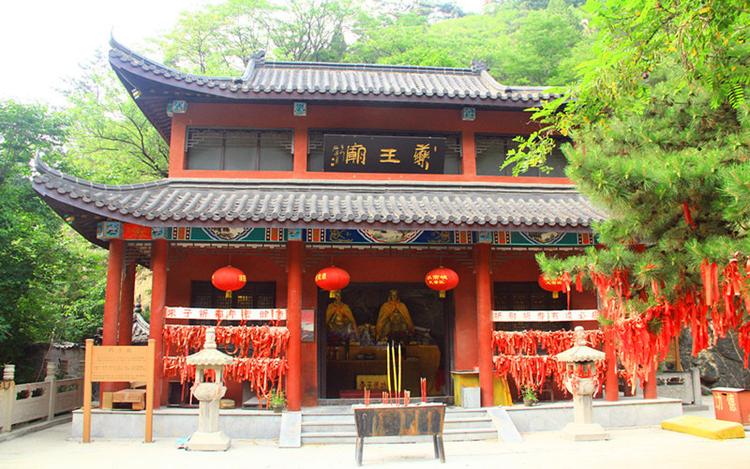
Baoding Yaowang Temple Anguo.
- The Herb Market: Experience the bustling atmosphere where vendors sell a variety of traditional Chinese herbs and medicinal products.
- Cultural Activities: Participate in local customs, such as dragon and lion dances during the temple fairs, which are vibrant and engaging.
Practical Tips
- Respect Local Customs: When visiting the temple, dress modestly and maintain a respectful demeanor, especially in prayer areas.
- Weather Considerations: The weather can vary, so check forecasts ahead of your visit. Comfortable walking shoes are recommended as you’ll be exploring extensively.
- Language: While some staff may speak basic English, learning a few Chinese phrases can enhance your experience and interactions with locals.
Nearby Accommodation and Dining
For those looking to stay overnight, Anguo offers several hotels and guesthouses ranging from budget to mid-range options. Additionally, local eateries serve delicious traditional dishes, including herbal soups and medicinal teas that complement your wellness journey.
Visiting Yaowang Temple provides a unique opportunity to immerse yourself in the history of Chinese medicine and culture, making it a worthwhile addition to any itinerary in this region of China.
Tickets, Hours, and Booking
Visiting Baoding Yaowang Temple in Anguo is both affordable and enriching, making it accessible for travelers eager to explore this historical site.
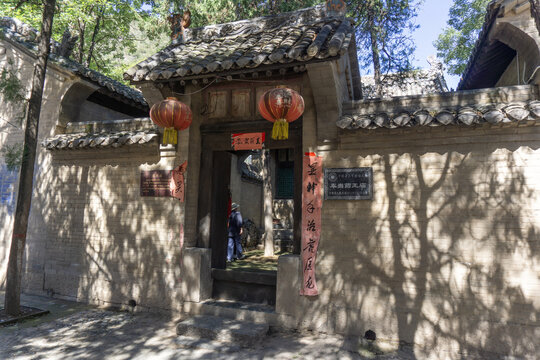
Baoding Yaowang Temple Anguo.
The ticket price for entry is a modest 10 RMB (approximately $1.50 USD), allowing guests to immerse themselves in the rich cultural heritage and architectural beauty of the temple. The temple is open daily from 8:30 AM to 5:30 PM, providing ample time for visitors to appreciate the various structures within the complex, including the main hall, the bell and drum towers, and the unique iron flagpoles that stand as a testament to ancient craftsmanship.
To reach the temple, you can conveniently take the Anguo 803 bus, which stops directly at the temple entrance. If you prefer driving, the site is easily accessible via major roads leading to Anguo City.
Whether you’re seeking spiritual solace, cultural insights, or simply a picturesque spot to explore, Baoding Yaowang Temple welcomes you with open arms at a truly affordable price.
How to Get There
Getting to Baoding Yaowang Temple in Anguo, located in Hebei Province, is relatively straightforward, thanks to the variety of transportation options available. Here’s how you can make your way to this historical site.
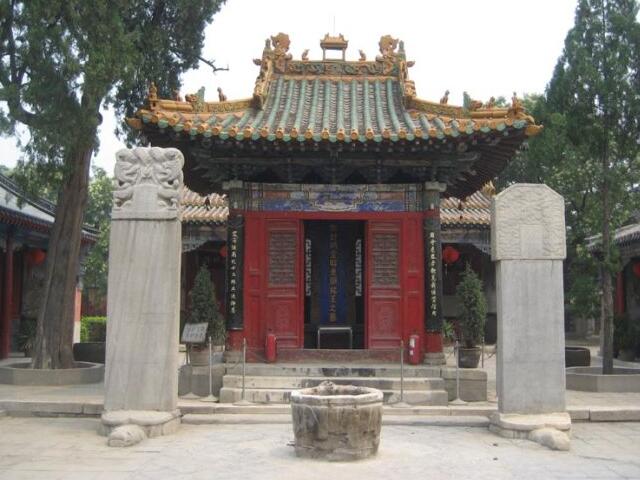
Baoding Yaowang Temple Anguo.
By Bus
For those traveling by public transport, the local bus network is a convenient choice. The An Guo 803 Bus Line provides direct service to Yaowang Temple Station. This option is not only economical but also allows you to experience the local environment as you travel. Make sure to check the bus schedules ahead of time to ensure a smooth journey.
By Car
Driving is another excellent way to reach the temple. If you opt for this method, the most common route is via Chaoyang South Street leading to S231. You will then navigate through Baoheng North Street, Binhe South Road, and finally Yaowang Temple Street. The drive offers a chance to enjoy the surrounding landscapes and is particularly pleasant in good weather.
By Train
If you are coming from outside Anguo, you might consider taking a train to Baoding Railway Station, which is the nearest major train station. From there, you can take a taxi or a local bus to reach the temple. The journey by train is efficient and connects you easily to other major cities.
Accessibility
The temple is open year-round, making it accessible for visitors at any time. The entrance fee is quite modest, at around 10 RMB. The temple itself is situated in a serene environment, surrounded by historical architecture and cultural significance, making the trip worthwhile.
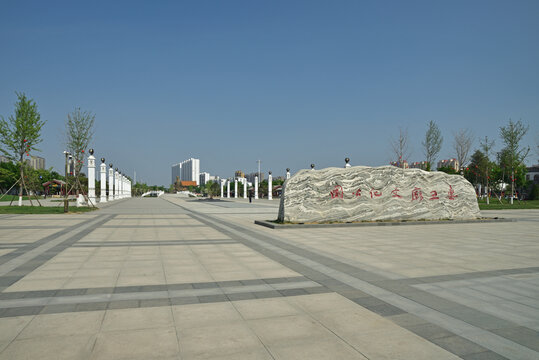
Baoding Yaowang Temple Anguo.
Travel Tips
- Plan Ahead: Whether you’re taking public transport or driving, check the schedules and traffic conditions in advance, especially during peak travel times.
- Local Weather: The best time to visit is throughout the year, but be sure to check the weather forecast to dress appropriately.
- Respect Local Customs: As a place of worship, it’s important to be respectful of the local customs when visiting the temple.
With its rich cultural heritage and beautiful surroundings, Baoding Yaowang Temple offers a unique glimpse into China’s traditional medicinal history, making it a must-visit destination for travelers in the region.
Local Cuisine and Accommodation
When visiting the Baoding Yaowang Temple in Anguo, you can enjoy a delightful blend of local cuisine and comfortable accommodations that enhance your experience of this historic site. The area around the temple is rich in culinary offerings and lodging options, catering to various tastes and budgets.
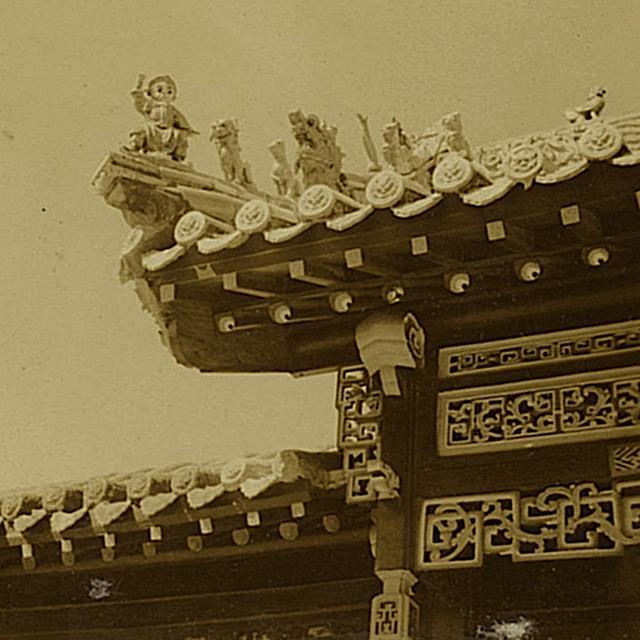
Baoding Yaowang Temple Anguo.
Local Cuisine
In Anguo, the culinary scene is heavily influenced by its reputation as the “Medicine Capital” of China, making traditional Chinese herbal dishes a must-try. Here are some culinary highlights:
-
Herbal Cuisine: Many local restaurants specialize in dishes infused with traditional Chinese medicinal herbs. These meals are not only flavorful but also believed to provide health benefits. Look for restaurants like Yao Wang Restaurant, which offers a menu rich in herbal-infused soups and dishes.
-
Noodle Shops: For a quick and comforting meal, try one of the local noodle shops, such as Li Shi Noodle Shop, known for its hand-pulled noodles served with various toppings. The aromatic broth and fresh ingredients make it a favorite among locals and visitors alike.
-
Street Food: Don’t miss the street vendors offering local snacks. Try Jianbing (a type of Chinese pancake) or Mala Tang (spicy hot pot), which are popular among visitors for their bold flavors and affordable prices.
-
Tea Houses: To unwind after a day of exploring, visit a local tea house. Enjoy a selection of traditional Chinese teas, often accompanied by light snacks. Cha Yi Tang is recommended for its serene atmosphere and knowledgeable staff who can guide you through the selection of teas.
Accommodation Options
Whether you prefer a cozy guesthouse or a more upscale experience, Anguo has several accommodation options to suit your needs:
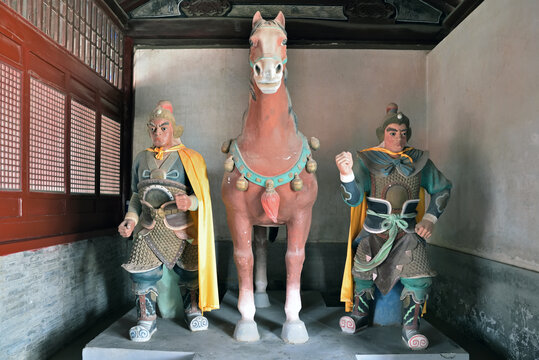
Baoding Yaowang Temple Anguo.
-
Traditional Guesthouses: For an authentic experience, consider staying at a guesthouse like An Guo Old Town Inn, where you can enjoy traditional decor and personalized service. These inns often provide a warm and welcoming environment, perfect for immersing yourself in local culture.
-
Mid-range Hotels: If you prefer more modern amenities, the Anguo International Hotel offers comfortable rooms and is conveniently located near the temple. It features a restaurant, fitness center, and free Wi-Fi, ensuring a pleasant stay.
-
Budget Options: For travelers on a tight budget, consider the Yuanhe Hostel, which offers dormitory-style accommodations as well as private rooms. It’s a great place to meet fellow travelers and is just a short walk from the temple.
-
Luxury Accommodations: Those seeking a more luxurious stay can book a room at the Baoding Grand Hotel, located a bit farther from the temple but offering exquisite dining options, spa services, and elegantly designed rooms.
In summary, your visit to Baoding Yaowang Temple in Anguo will be enriched by exploring the local food scene and enjoying comfortable accommodations. Each option provides a unique way to experience the culture and hospitality of this historical region.
Frequently Asked Questions
Frequently Asked Questions about Baoding Yaowang Temple (药王庙)
-
What is the historical significance of Baoding Yaowang Temple?
Baoding Yaowang Temple, also known as the Medicine King Temple, is the largest ancient architectural complex in China dedicated to the veneration of historical medical figures. Established over a thousand years ago, it serves as a symbol of Chinese medicine and culture, particularly honoring the renowned physician Sun Simiao from the Tang Dynasty. -
Where is Baoding Yaowang Temple located?
The temple is situated in Anguo City, Baoding, Hebei Province, China. It occupies a prominent position in the heart of the historic medicinal herb trading hub known as “the Medicine Capital” of China. -
What are the opening hours and admission fees?
Baoding Yaowang Temple is open daily from 8:30 AM to 5:30 PM, and the admission fee is a modest 10 CNY. -
How can I get to Baoding Yaowang Temple?
You can reach the temple via public transportation by taking bus route 803 to the Yaowang Temple stop. Alternatively, if driving, follow the designated routes through Anguo City, which are well-marked. -
What attractions can I find within the temple complex?
The temple complex features various significant structures, including the main hall where the statue of Sun Simiao resides, the bell and drum towers, the ten famous doctors’ hall, and the unique iron flagpoles. The architecture reflects a blend of styles from the Song, Ming, and Qing dynasties. -
Are there any special events or festivals at the temple?
Yes, significant festivals are held on the 28th day of the fourth lunar month and the 15th day of the tenth lunar month, celebrating the contributions of the Medicine King. These events attract large crowds and feature traditional activities, including temple fairs and folk performances. -
Is there accommodation nearby?
Anguo City offers various accommodation options ranging from hotels to guesthouses, providing visitors with convenient access to the temple and surrounding attractions. -
What is the best time to visit Baoding Yaowang Temple?
The temple can be visited year-round, as each season offers a unique charm. However, visiting during the spring or autumn may provide milder weather and a more pleasant experience for exploring the outdoor areas of the temple complex.
Final Thoughts on Your Trip
Visiting the Baoding Yaowang Temple in Anguo is more than just a journey to a historical site; it is an immersion into the rich tapestry of Chinese medicinal culture and folklore. As you stroll through the temple’s ancient halls, surrounded by intricate architecture that has withstood the test of time, you can feel the echoes of centuries past, where the wisdom of revered physicians like Sun Simiao comes to life.
This temple not only serves as a shrine to traditional medicine but also stands as a vibrant center for cultural exchange, particularly during the bustling temple fairs held twice a year. These events attract visitors from all over, eager to experience the local traditions, taste herbal delicacies, and engage in the lively atmosphere that envelops the area.
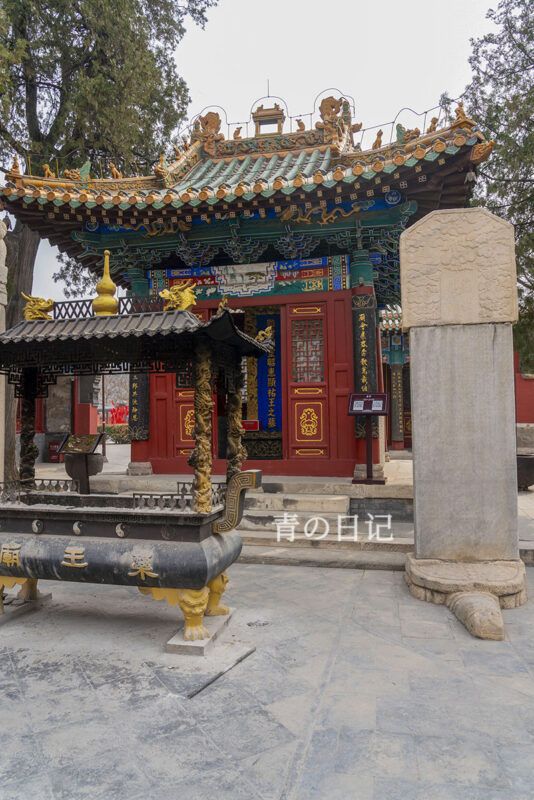
Baoding Yaowang Temple Anguo.
For those seeking both spiritual enrichment and a deeper understanding of traditional Chinese medicine, Yaowang Temple is an essential stop. Whether you’re drawn by the allure of its historical significance or the vibrant local culture, a visit here promises to leave you with unforgettable memories and a newfound appreciation for the ancient practices that continue to thrive in this modern age.
So, when planning your journey through Hebei province, make sure to carve out time for this unique gem. It’s a place where history, healing, and community converge—an experience that truly embodies the heart and soul of Chinese heritage.
